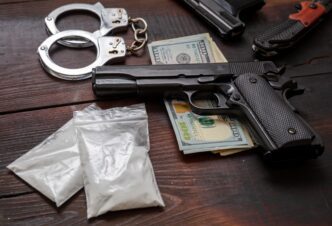In the wake of Bashar Assad’s fall in Syria, significant revelations have come to light regarding the widespread production of Captagon, a highly addictive stimulant drug. The conflict-ridden nation, fragmented by nearly 14 years of civil war, has emerged as a hub for Captagon manufacturing, contributing to a multi-billion dollar global trade.
Since the ouster of former Syrian President Bashar Assad, numerous large-scale Captagon production facilities have been discovered across Syria. These establishments, which experts say supported a $10 billion annual trade, were located in various parts of the country, including a former snack chip factory in Douma, repurposed by government forces in 2018. Firas al-Toot, the original owner of this factory, recounted to the Associated Press how Assad’s collaborators set the facilities ablaze before abandoning them, leaving behind remnants of the drug.
The Syrian civil war has not only devastated the national economy but also created conducive conditions for drug production. The Assad regime, along with militias and warlords, transformed Captagon production from small criminal operations into a significant revenue source. With Assad’s regime dismantled, there is now an opportunity to disrupt the Captagon industry, though the task remains complex.
Originally developed in 1960s Germany as a prescription stimulant, Captagon found popularity in the Middle East due to its amphetamine-like effects, enhancing focus and reducing fatigue. Amid economic collapse and international sanctions, Assad’s government recognized the potential of this cheaply produced drug to bolster its finances. Captagon production became more industrialized between 2018 and 2019, with Syria becoming the leading global producer.
Captagon was predominantly smuggled from Syria through its porous borders with Lebanon, Jordan, and Iraq. Concealed in everyday items like food and electronics, the drug primarily reached affluent Gulf nations such as Saudi Arabia and the UAE. Reports indicate that Hezbollah facilitated Captagon trafficking in Lebanon, leading to strict import bans from affected countries. The drug even reached Southeast Asia and Europe, highlighting its far-reaching impact.
Financially, the Captagon trade provided substantial gain for the Assad regime, reportedly netting the family about $2.4 billion annually. Caroline Rose of the New Lines Institute emphasized the extensive regime involvement in this illicit trade, with evidence of coordination by Assad’s brother Maher’s Security Office.
International efforts to control the Captagon trade were limited in effectiveness, as the Assad regime used the drug’s trade to negotiate politically with neighboring states. Rejoining the Arab League in 2023, Syria committed to curbing smuggling operations, prompting increased regional security cooperation. However, enforcement remains challenging amid complex smuggling networks.
In post-Assad Syria, the Captagon industry’s future is uncertain. Ahmad al-Sharaa of Hayat Tahrir al-Sham has declared the nation is being cleansed of its drug operations, yet the involvement of rebel groups and organized crime in drug smuggling persists. Rose warns of potential resurgence as criminal entities adapt, underscoring the need for proactive economic development programs to provide lawful opportunities for Syrians.
The downfall of Bashar Assad has not only unveiled the extent of Syria’s involvement in the Captagon trade but also opened pathways to potentially dismantling a significant narcotic network. While the Assad regime capitalized on this illicit industry, the ongoing effort to curb its influence requires continuous and collaborative international engagement. Syria now faces the dual challenge of eliminating illegal drug operations and fostering legitimate economic growth to rebuild its fractured society.
Source: News4jax






